Mission Statement | Curriculum Overview | Guiding Principles | The Foundations Approach | Curriculum Access
MISSION STATEMENT
To create and provide free, open-access, comprehensive curricula and develop instructional practices that serve as the gold standard in medical education.
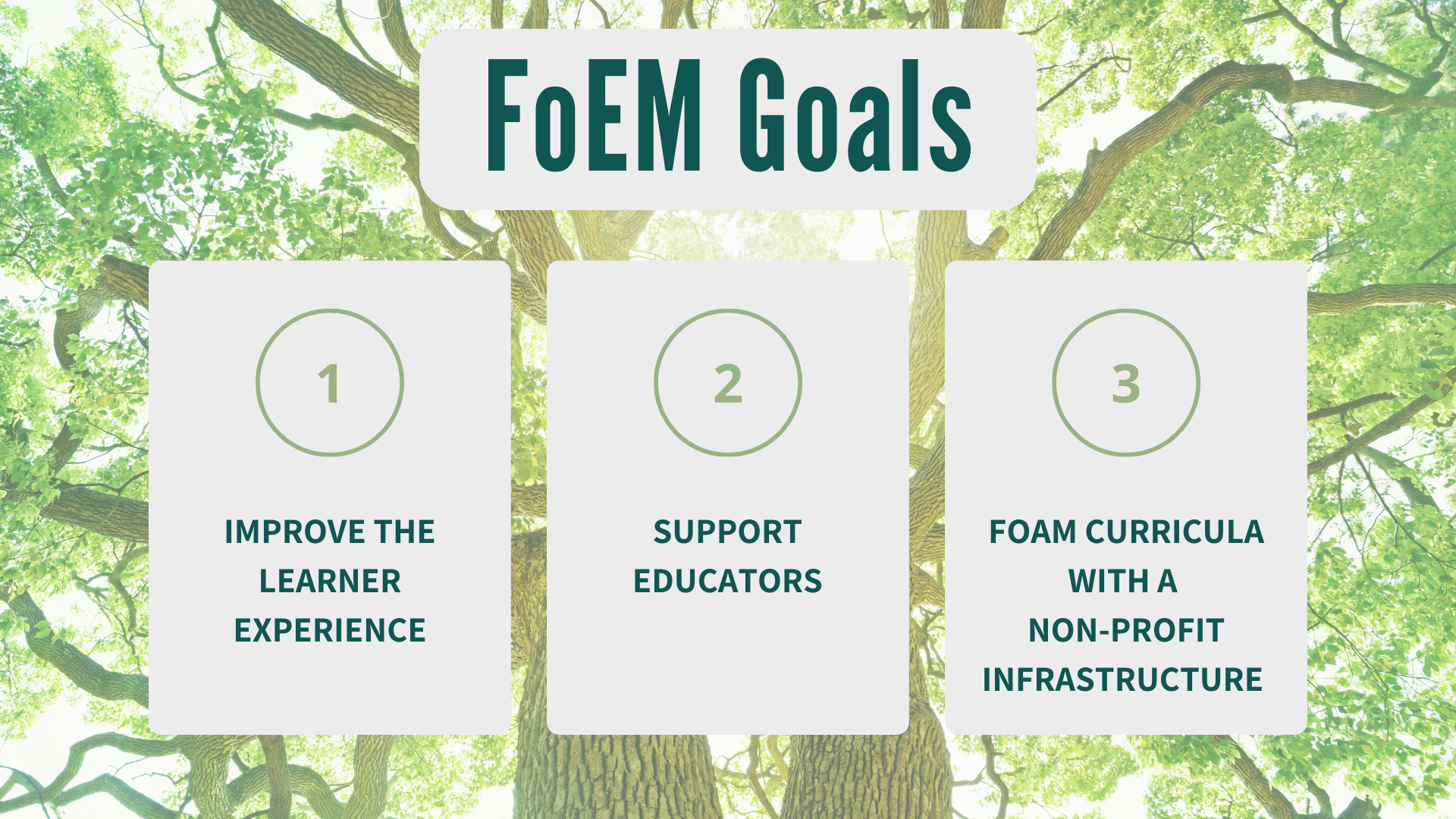
CURRICULUM OVERVIEW
The Foundations of Emergency Medicine curriculum was designed to create a new standard for innovative education in our profession. It provides a learner-centric approach with targeted content for varying level learners. Our cornerstone Foundations I-III courses provide a guided independent review of EM core content using our Learning Pathways. Classroom time is reserved for active learning with case-based, small group discussions and focused critical teaching points. This approach helps learners “grow roots” by developing a solid framework for Emergency Medicine knowledge and avoid gaps inherent in traditional curricular approaches. In recent years, we’ve also developed supplemental courses targeting expanded topics and learner groups to enrich the learner experience.
GUIDING PRINCIPLES
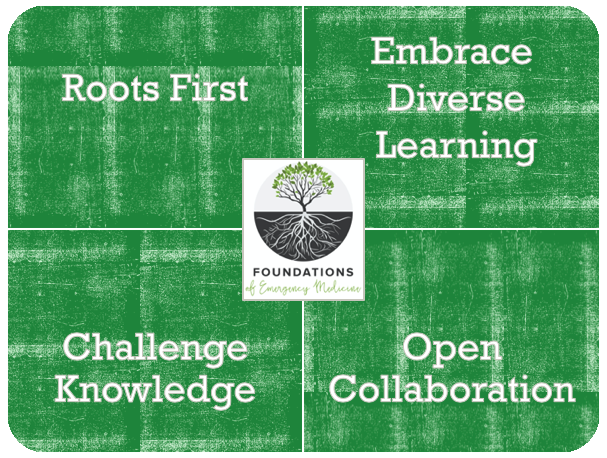
Roots First: It is essential to lay a groundwork of fundamental knowledge for early learners in Emergency Medicine since all come with different exposure through training and clinical experience.
Embrace Diverse Learning: Not all adult learners are the same and they don’t all learn the same way. Diverse learning styles warrant diverse teaching methods.
Challenge Knowledge: In the classroom, we must provide active learning opportunities, challenge knowledge in simulated clinical situations, and provide directed feedback and teaching.
Open Collaboration: We strive to create Emergency Medicine course resources that will be of value to others, can be easily adopted by other sites, and are designed to grow over time based on feedback and shared ideas.
THE FOUNDATIONS APPROACH
The following are components to our core curriculum design:
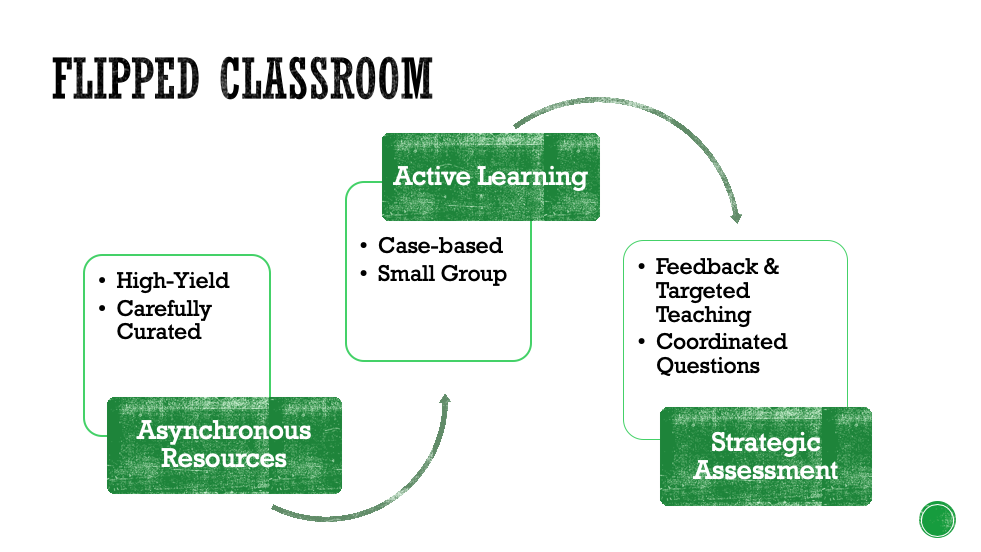
Flipped Classroom- With this approach, adult learners review high-yield, carefully curated resources that lay a groundwork of core content. Classroom time is dedicated to active case-based application of knowledge in a small group setting.
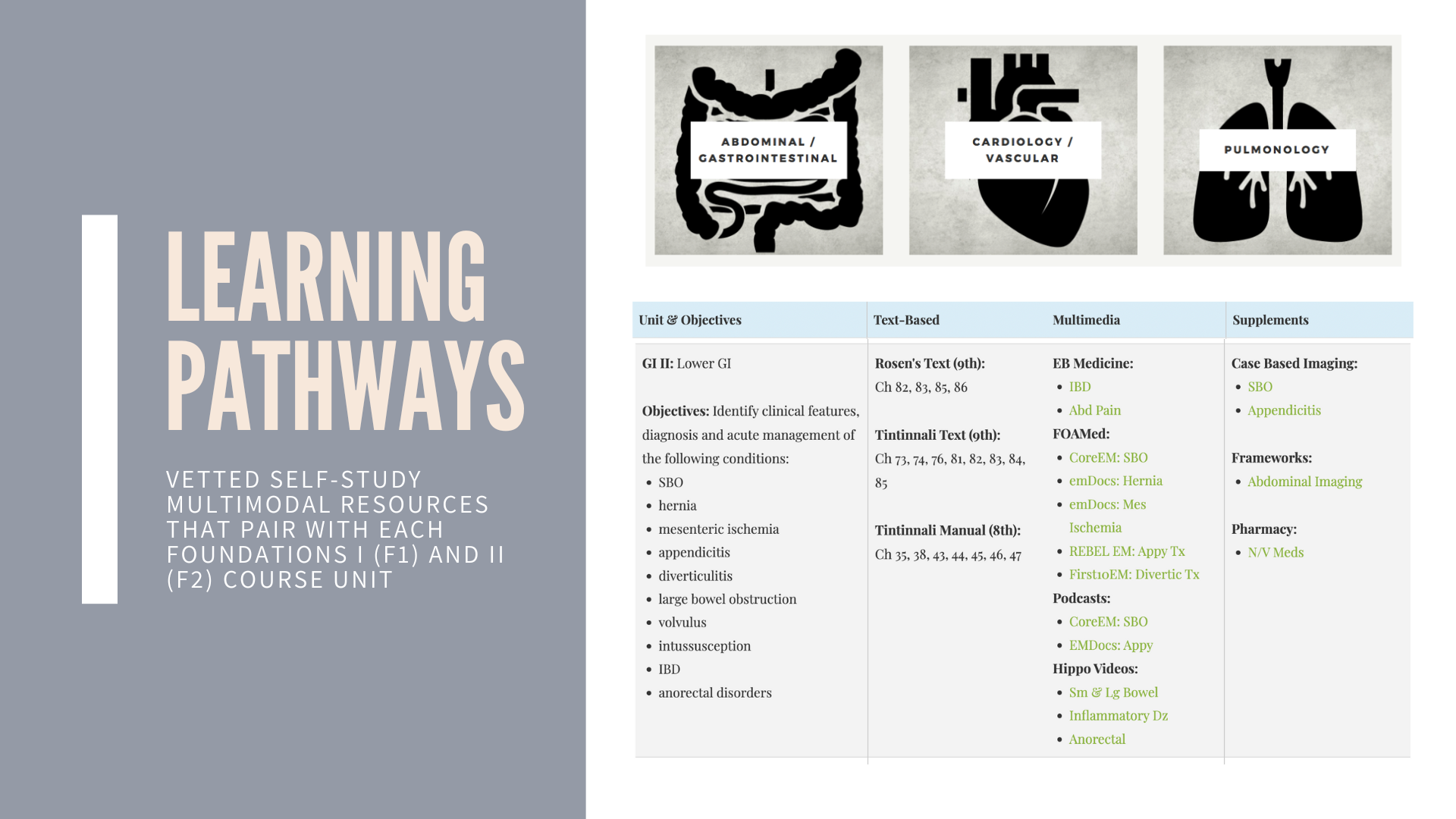
Learning Pathways- Foundations provides Learning Pathways for self-directed review of core EM content and learner choice based on learning preference. Learners access independent study content through this website and have the option to use text-based and multimedia resources — all of which cover the same core content.
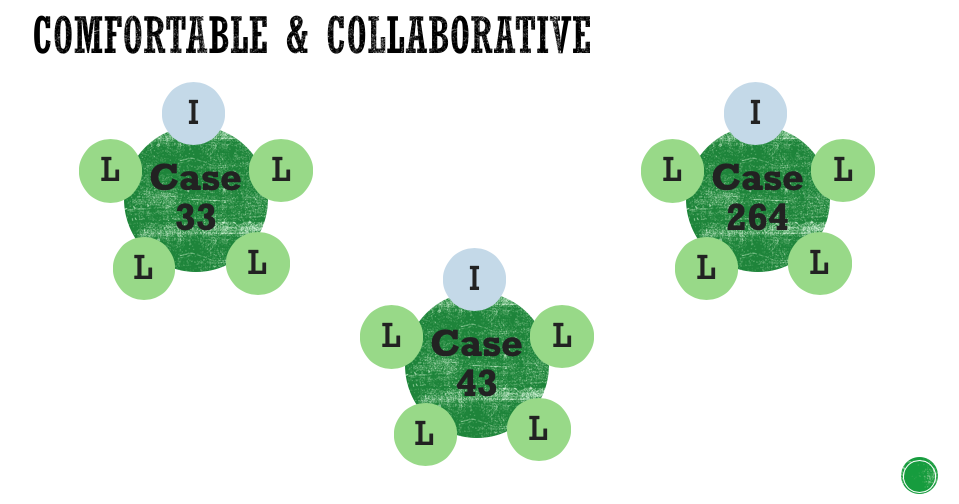
Comfortable and Collaborative Foundations Meetings- The cornerstone of our core courses involves weekly Foundations meetings, in which learners are expected to make use of acquired knowledge and skills through small group patient cases and oral boards-style review. These cases are used not for board prep, but rather as a tool for collaborative learning and simulation of the true clinical environment. Learners work in small groups led by senior resident or faculty instructors to discuss differential diagnoses, clinical reasoning, appropriate management and review curated learning points.
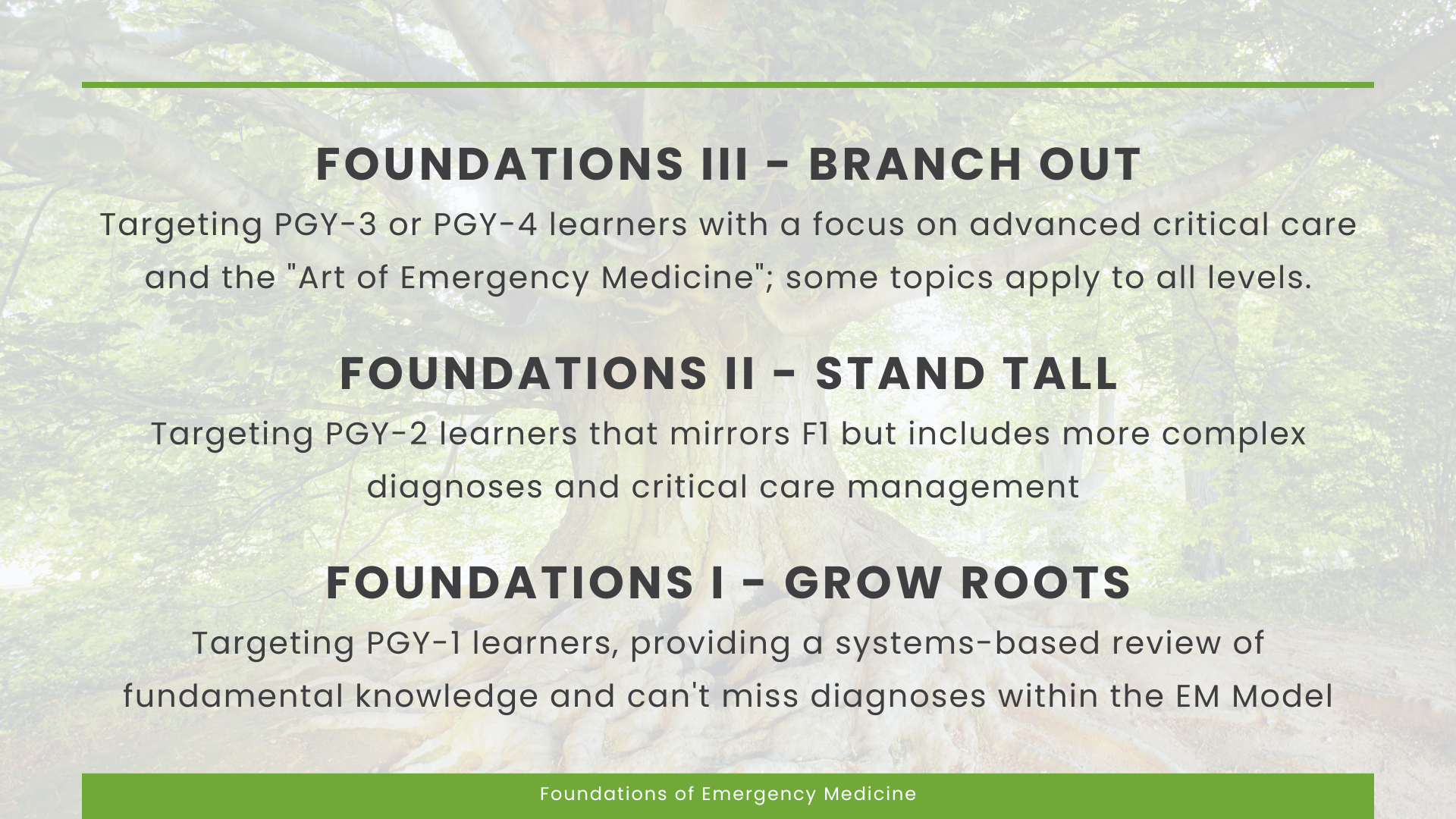
Level-Specific Education- The Foundations’ learner-centric approach not only addresses various learning preferences with Learning Pathways, but also different levels of learners. Our Foundations I-III courses allow learners to grow roots, stand tall, and branch out. PGY-1s review fundamental knowledge with Foundations I, PGY2/3s are challenged by advanced topics in Foundations II and PGY3/4s solidify knowledge as resident teachers and shape their clinical practice with Foundations III.

Portability and Open Access- The Foundations website presents up-to-date curricular materials for active Foundations member programs. Detailed guidelines for implementation, course management, small group instructor skills, and expectations for learners are available on the website to promote easy adoption of the curriculum at member sites.
CURRICULUM ACCESS
In line with the FOAMed movement, this is a not-for-profit venture. This curriculum is available as a free resource to all Emergency Medicine programs. However, Foundations curriculum planning and didactic resources are password-protected in order to prevent unrestricted distribution and to preserve the learner experience. If your program is interested in learning more about Foundations of Emergency Medicine or potentially incorporating it as a part of your educational strategy, feel free to contact our Founder & Chief Executive Officer, Dr. Kristen Grabow Moore (kristen@foundationsem.com) to gain access to additional content.